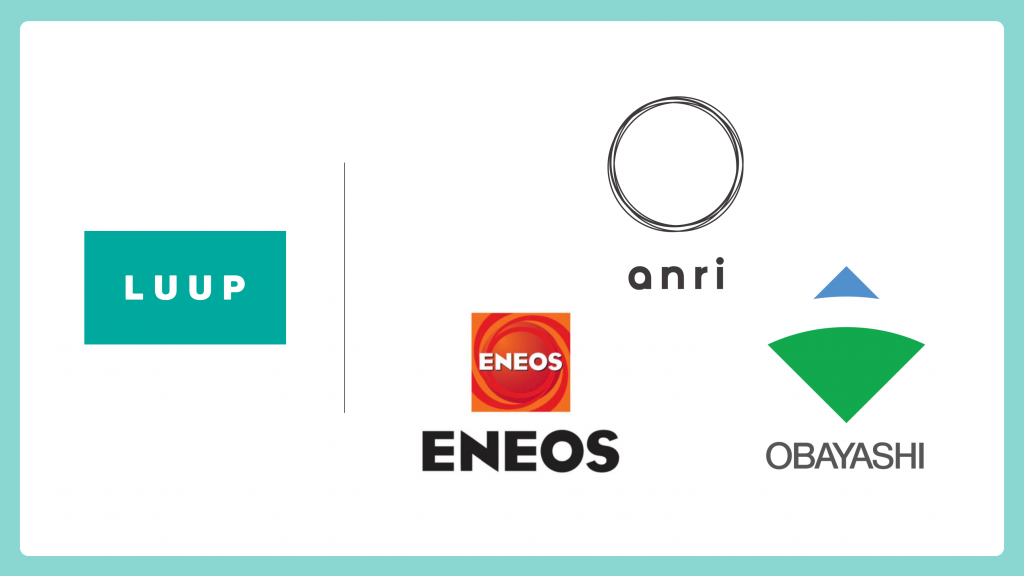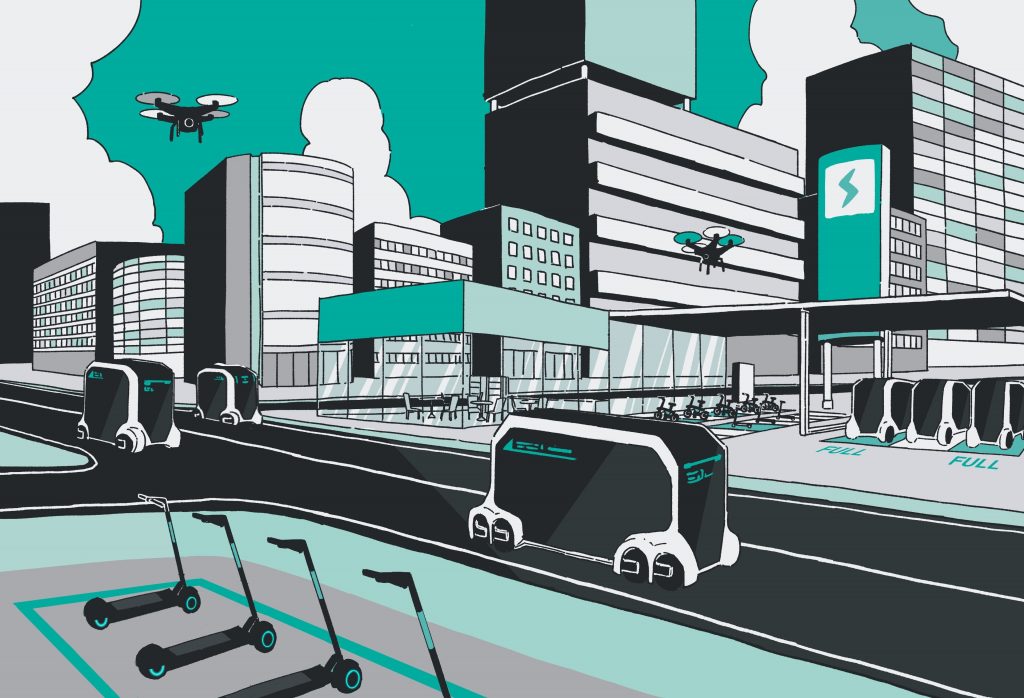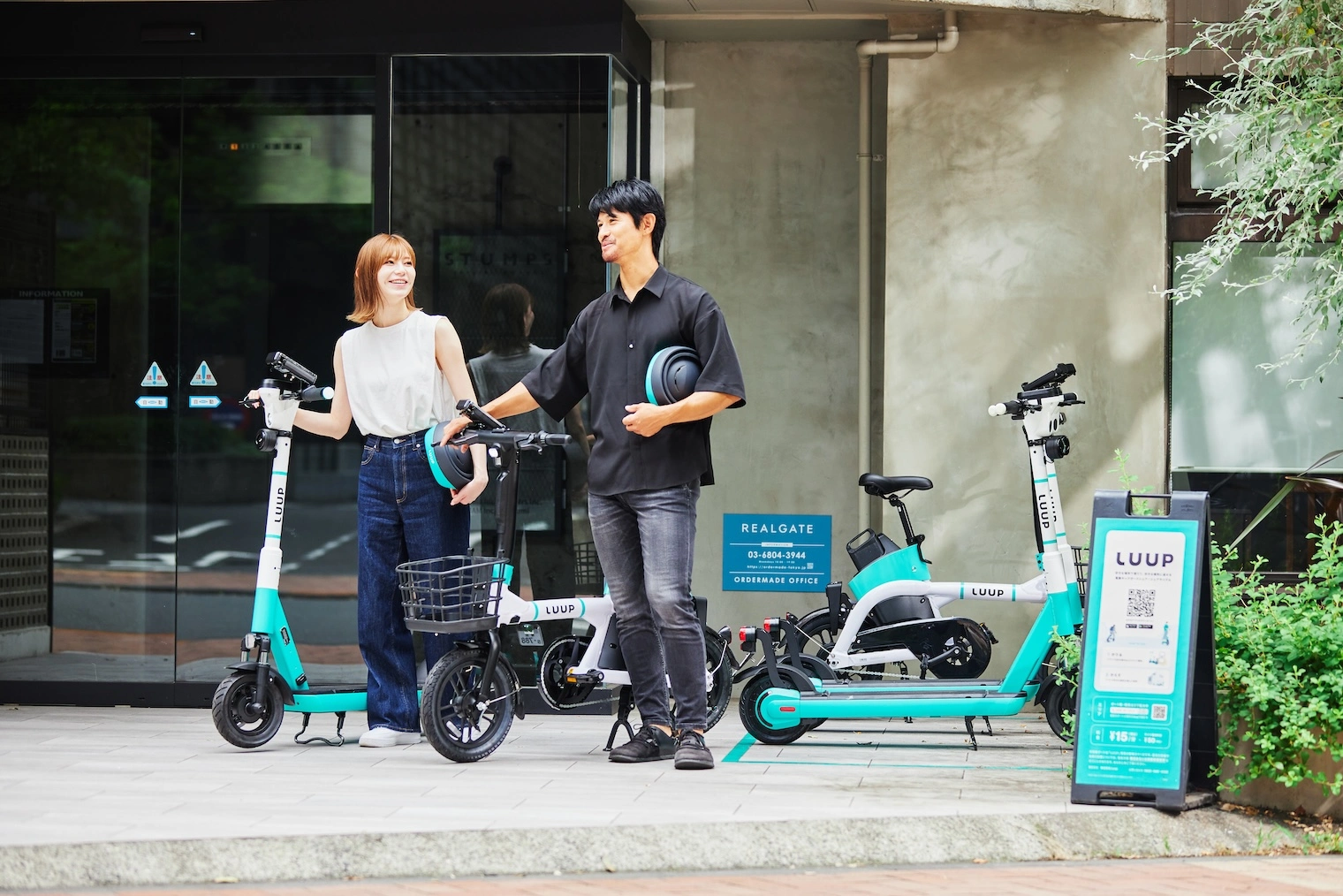E-Scooter Sharing Operator, Luup Raises 2 Billion Yen from Mori Trust, ESG-Focused VC, and Others
Will focus on ggrowing a product team to achieve the mission to make the entire city ‘a station front’
Luup, Inc. (Head office: Shibuya-ku, Tokyo; President and CEO: Daiki Okai; hereinafter “Luup”), which operates “LUUP,” a sharing service of “electric micromobility” including e-scooters and e-bikes, has completed raising a total of 2 billion yen.
In recognition of Luup’s ability to realize a sustainable society with low environmental impact through the implementation of electric micromobility, Luup has received investment from new investors including Mori Trust Co., Ltd. (Head office: Minato-ku, Tokyo; President and CEO: Miwako Date; hereinafter “Mori Trust”) and Open Network Lab ESG I Investment Limited Partnership (Head office: Shibuya-ku, Tokyo; General Partner: DG Incubation, Inc.; hereinafter “Earthshot Fund”) and also additional investment from several existing investors including VCs and business companies.
Using the funds, Luup will strengthen the development of its micromobility business to create a sustainable society and will continue discussions with several potential investors for further business expansion in the future.

Background of Financing
With the mission to “create an infrastructure that turns the entire city into a ‘station front.’” Luup provides sharing services using e-scooters and e-bikes, and in the future aims to introduce mobility that is easy and safe for the elderly and/or disabled to ride.
With this financing, Luup will further strengthen the development of its micromobility business to create a sustainable society. Luup has been driving the project in discussions with local governments and relevant ministries and agencies, with the goal of creating an infrastructure that will turn the entire city into a ‘station front.’ However, in order for new products to spread in society, we must propose and be responsible for delivering higher quality and pleasant experiences as an infrastructure than ever before. With this financing, we will establish a development structure that can make better use of the data possessed by the product and quickly test hypotheses, and promote research and development of the micromobility business that goes beyond the accelerated development of LUUP.
Details of the Financing

In recognition of the fact that the implementation of electric micromobility can realize a sustainable society with a low environmental impact, Luup has attracted new investors including Mori Trust, Earthshot Fund, ZFP No. 1 Investment Limited Partnership (Location: Chiyoda-ku, Tokyo; General Partner: Zenrin Future Partners Co., Ltd.; hereinafter “Zenrin Future Partners”), and also additional investment from several existing investors including Daito Trust Construction Co., Ltd. (Head office: Minato-ku, Tokyo; President and CEO: Katsuma Kobayashi; hereinafter “Daito Trust Construction”) and other VCs and business companies. Together with the 750 million yen in funding already raised in April 2021, this round brings the total funding raised to 2 billion yen.
With Mori Trust, we will work together to create a new way of urbanization and tourism using micromobility in the office areas that Mori Trust is focusing on, such as Toranomon and Akasaka in Tokyo, as well as in the resort areas that they are developing in various parts of Japan.
For Earthshot Fund, Luup is the first investment since the fund was founded. We are honored that the fund, which conducts investment activities with a focus on major social, technological, and environmental changes occurring on a global scale, has recognized our work, and we will continue to develop our business in line with the fund’s ESG initiatives.
Zenrin Co. Ltd. (Hereinafter “Zenrin”), the parent company of Zenrin Future Partners, and Luup will combine Zenrin’s granular map data on local buildings, sidewalks, and roadways with Luup’s mobility data to improve the functionality of safe and efficient services and develop new services.
Daito Trust Construction manages the largest number of residential rental buildings in Japan, and Luup will continue to strengthen the implementation of LUUP ports in properties managed by Daito Trust Construction, aiming to realize “a town or house you would want to live in if it has LUUP”.
Comment from Daiki Okai, CEO of Luup
Luup is creating a product called “LUUP,” which allows electric micromobility to be shared throughout the city, with the mission to “create an infrastructure that turns the entire city into a ‘station front.’”
Luup has focused not only on the development of software and hardware that shape the user experience but also on activities such as rulemaking for social implementation of new mobility and alliances to expand the number of ports. As a result, we were able to install more ports than convenience stores in Shibuya, an overcrowded city with little available real estate space, and the number of app downloads and users has continued to grow rapidly since the e-scooter was launched on April 23, 2021, under special government measures.
It has been about three years since Luup was founded, and I believe that Luup has finally reached its starting point. In order to make Japanese cities, which have the most developed railroads and station areas in the world, more comfortable to live in, we will accelerate our efforts to create the world’s one and only product by considering the most appropriate form of infrastructure.
We have raised additional funds to enable all teams involved in LUUP to achieve maximum performance. The investors who participated in this round made the decision to invest and collaborate with us because they believe in a future where LUUP, which is still in its infancy at this point, will become a sustainable infrastructure that will support Japan. The entire Luup team will continue to make every effort to “create an infrastructure that turns the entire city into a ‘station front’ for the sake of all the people who live in the city and for the investors who participated in this financing.




















